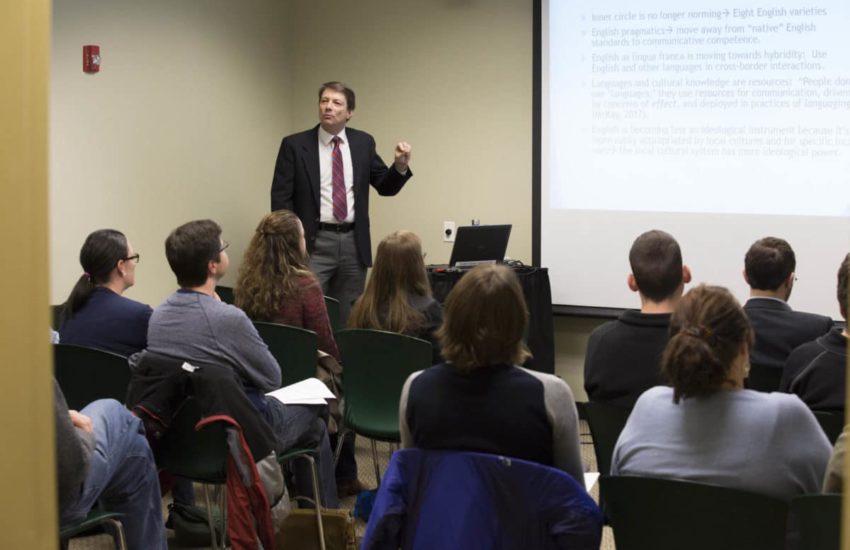Writing, Rhetoric, & Discourse recently received a Department Initiative Grant from DePaul University to enhance the teaching of WRD 202: Professional Writing for Business. WRD 202 is unique given that its student population is unlike most WRD courses; it is taught by WRD faculty but taken by students in DePaul’s Driehaus College for Business. As part of the Driehaus Business Core, WRD 202 teaches students the conventions of writing in business contexts. Additionally, the percentage of multilingual students who take courses in the Driehaus Business Core is substantial.
As a result, a primary goal of the grant is to create additional sections of WRD 202x, a version of Professional Writing for Business designed specifically for students who are multilingual/non-native English speakers. Peter Vandenberg, WRD Chair and co-author of WRD’s grant application, explains: “As our commitment to international students increases, and the university’s linguistic diversity widens, it will be increasingly important to provide for-credit support to students with limited academic work in the language of instruction. WRD is pleased to be able to provide expertise in reading and writing for this important population in the form of our X-section courses.” These X-section WRD 202 courses will be offered for the first time in Autumn 2017.
A related component of WRD’s grant is bringing to campus an expert in international business writing to inform the creation WRD 202x. To that end, Dr. Barry Thatcher from New Mexico State University visited WRD this Spring Quarter to discuss global trends in business writing and to work closely with Alan Ackmann (the Professional Writing for Business Coordinator and co-author of WRD’s grant application), Margaret Poncin (the WRD 202x instructor), and Peter Vandenberg. Thatcher has researched extensively on the ways in which culture and genre interact, especially in business and professional writing. In U.S. academic contexts, for example, Thatcher proposes that faculty must understand how to help students produce writing that follows genre conventions in the U.S., but also to think critically about these conventions and how they might be adjusted for other cultural contexts.
Margaret Poncin discusses this idea of genre and cultural awareness as it relates to her teaching of WRD 202x: “Our goal with this course is that it aligns with the other 202 sections, but much of what is typically covered in a professional writing course are actually very American in style. For example, some genres—like cover letters—aren’t used in some countries, and some style conventions—directness, conciseness, etc.—might not be appropriate in other contexts. Since a lot of the x-section students plan to work outside the U.S., we need a course that does two things: provides students opportunities to produce writing appropriate for U.S. workplaces but also enables them to transfer their learning to international contexts.”
Finally, in addition to creating WRD 202x, the Department Initiative Grant will be used to develop a WRD 202 handbook for faculty teaching Professional Writing for Business. Because many WRD faculty members teach sections of WRD 202 throughout the academic year, the handbook will be especially helpful as a resource and point of reference for faculty.
